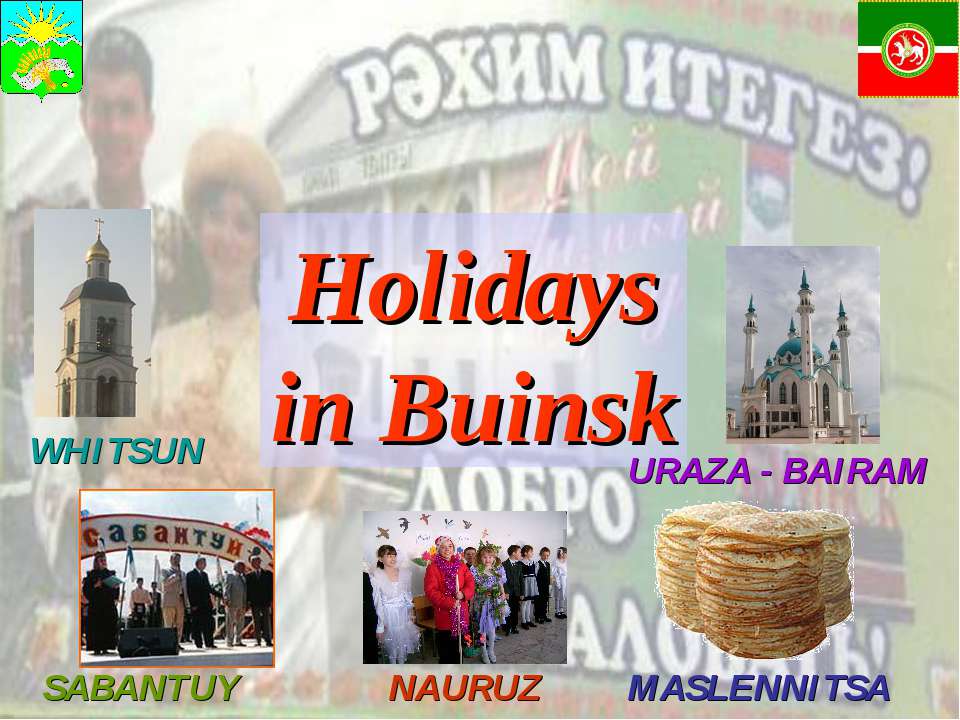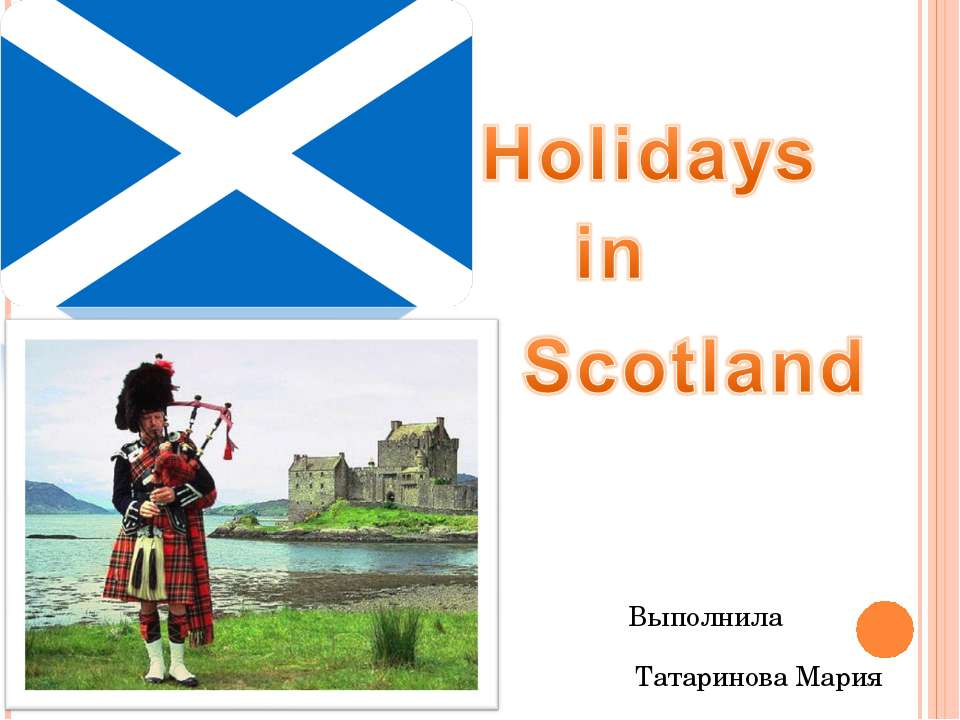Holidays in Buinsk

- Рубрика: Презентации / Презентации по английскому языку
- Просмотров: 219
Презентация для классов "Holidays in Buinsk" онлайн бесплатно на сайте электронных школьных презентаций uchebniki.org.ua
BUINSK IS MY HOMETOWN In the 18th century the empress Catherine II raised the village Afanasovo to the rank of town. District of Buinsk was founded in 1930. Buinsk got the town status of republic importance in 2000. The emblem of Buinsk is a silver sheep on a green field. People of different nationalities live and work in my town. This friendship is our main wealth.
WHITSUN One of the most significant Christian holidays is whitsun on Whitsunday. Whitsun or Trinity Day is a religious holiday which is broadly and solemnly celebrated by the Christians of the whole world. Whitsun is observed annually at the end of May or at the beginning of June. On that day the houses are decorated with green twigs, blowers and young sprouts. In all churches we can hear: “In the name of the Father, and the Son and Holy Spirit, Amen”.
URAZA BAIRAM One of the most ancient of Tatar customs is lent or Uraza as they call it. The month when this important event takes place is called Ramazan. The first day of Ramazan begins with praying. When the day comes people eat or drink nothing. After the sunset people start praying again. After that they are allowed to eat. The end of Ramazan means the end of Lent and there is a holidays called Uraza Bairam.
MASLENNITSA Maslennitsa is a traditional Russian holiday. Maslennitsa takes place at the end of winter. In old times Slavic people believed in different Gods and Yarilo was the main of them. In his honour people fried a lot of pancakes – hot and round like the sun and put much butter on them. The holiday lasted a week.
NAURUZ “Nauruz” means the “New Year Day”. It is a very old festival. This festival takes place on the 21st of March.. People choose the most beautiful girl. She is called “Nauruz – bikeh”. People sing songs and dance. DZHIEN Dzhien is a holiday for the young people. It is a very old festival. This holiday takes place at the end of May or at the beginning of June. During this holiday there are a lot of games, competitions. There are many songs and dance in a ring in this holiday.
TRADITIONS OF SABANTUY Sabantuy is, perhaps, the most popular festival in Buinsk. This holiday takes place at the beginning of summer, after the first haymaking. The most exiting are the horse races. The most popular competition is the national wrestling. At the end they choose a winner. He is usually given a sheep as a prize. The winner or batyr of Sabantuy in Buinsk was Khasanzyanov Almaz last year. He is our school-leaver. We are proud of him.
New Year’s party My favourite holiday is New Year. People decorate the New Year Tree, get a lot of presents and wish Happy New Year to each other. This festival takes place on the 31st of December. People come together for this day. “Pelmeni” and “olivje” are symbols of New Year. It is a really wonderful holiday.
A day of the town This festival takes place in autumn. During this festival there are a lot of sport competitions, concert programmes, different games for children, flower competition. On the fair you can buy all you want. Citizens celebrate this holiday together.
There are also a lot of funny competitions and sport games, for example, egg-races, “running-in-sacks” races, horse races. Climbing up a high pole is rather difficult, but very funny. The prize is a big cock, sitting on the top!
It is one of those days when a man, whatever nationality he may be, can rest, relax and have a good time.
CONCLUSION Each nation has its holidays and traditions. Some of them are specific to this or that nation. Many of them have become very popular, common and loved by all. People of different nationalities live in Buinsk. They live in friendship and they are respectful. Each holiday we celebrate together despite our nationality. I think, holidays and traditions bring up people in the spirit of love to the country and their hometown. Things tend to change, but people and their traditions don’t.
















